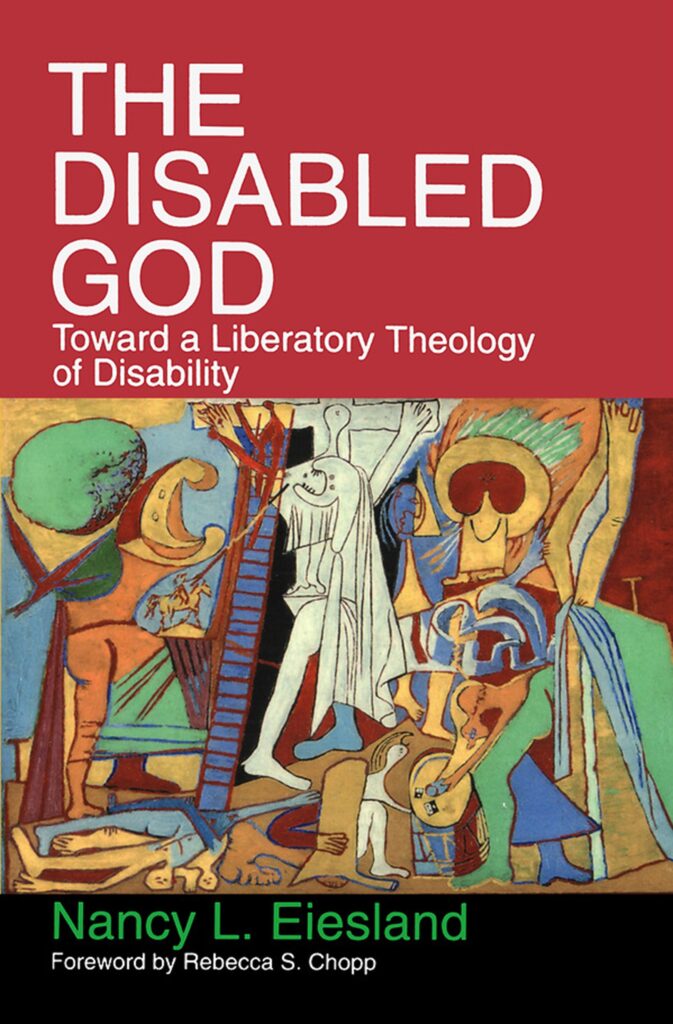Theology for a new conversation: disability and healthcare rationing
What comes to mind when you think of ‘the perfect human?’ Are they athletic, musical, intelligent – or just able-bodied?
Whether we realise it or not, the concept of an able-bodied ‘perfect human’ is something that permeates our lives, from daily social interactions to healthcare – having deep-seated effects on how disabled and neurodivergent people experience society. Aaron Davis, completing his PhD in the School of Divinity, is using theology to understand why this assumption exists, and how it can be challenged.
What is a theology?
Theology (from the Greek term “theologia,” thoughts or speech about God) refers broadly to the study of the divine and its relationship the world. This can include various “theology of” fields (e.g., theologies of politics, or political theologies) which focus on a particular parts or aspects of the world – in Davis’ case, disability. What it means to be human, and what it means to be a ‘perfect’ or ‘flourishing’ human, is a topic widely explored in religion. It comes to an interesting nexus in disability studies, particularly when considering how healthcare is given to disabled individuals. As such, drawing on disability studies literature and theological analysis, Davis is putting forward a theology of healthcare rationing: an analysis that considers the religious, legal, and social beliefs that inform how healthcare is distributed to disabled people.

A theology of healthcare rationing
Davis’ theology focuses on a key idea identified by disabilities studies literature: that many people share the concept of a ‘proper functioning human’, who is considered able-bodied and neurotypical. Thus, as disabled people are perceived to fall short of these standards, their bodies and minds are marked as those that should not exist. Disability is considered inherently negative. For example, a primarily favoured ‘treatment’ for deaf individuals is cochlear implants – thus ‘curing’ their deafness – rather than guiding the patient toward other forms of lifestyle help or communicative tools. More starkly, the field of bioethics, when considering disabled individuals, tends to largely focus on the prevention of birth or permittance of death based on disabled status, rather than life as a disabled person. Davis sought to know why, given the vast body of theological convictions that challenged the idea of a ‘perfect’ human, these ideas remained so widespread. One answer, he argues, is healthcare rationing.
Davis’ theology of healthcare rationing proposes that the distribution of healthcare resources – in other words, how healthcare is rationed – is a major perpetrator of the ‘inherent’ belief that being disabled is innately negative. Medical institutions, based on the assumption that it is worse to be disabled than nondisabled, allocate more resources toward ‘curing’ disabilities rather than supporting the lives of disabled individuals. As such, this perpetuates the idea that the minds and bodies of disabled people need to be ‘fixed’ or eliminated, rather than accepted as they are. If the idea of a ‘perfect human’ did not exist, he asks, then why would disability be inherently negative? Significantly, Davis finds that this rationing prevails throughout different healthcare systems around the world, since the question of allocating finite resources is always relevant regardless of healthcare structure.
By approaching this topic from a theological lens, Davis questions these assumptions by situating them against religious beliefs about what it means to be human, what it means to have fundamental dignity, and what it means to be ‘made in the image of God’. His thesis will first define a set of common beliefs about human wellbeing, drawing from theology, philosophy, and law. Then, it will investigate how healthcare rationing causes a discrepancy between these beliefs and how disabled people are treated in society. Finally, it will ask how the idea of disability as innately negative can be challenged – a major goal of Davis’ project is working toward safeguarding the dignity of disabled people, as disabled people.
These issues that affect disabled individuals in day-to-day life all stem from how we think about existence and human wellbeing. As such, Davis aims to support and advocate for disabled individuals by changing how we think about disability. He is the first to bring healthcare rationing, theology, and disability together into one analysis, and hopes that this work will begin a new conversation about how we exist in the world, and how we treat our fellow people.

